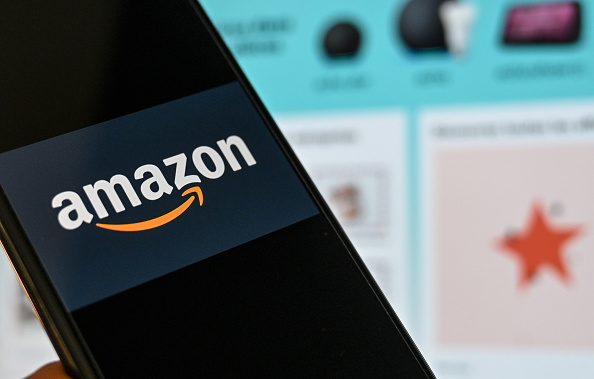Over the last few years, the American imports, Black Friday and Cyber Monday, have continued to grow in popularity on this side of the pond – and they’re once again fast approaching, with the much-anticipated weekend starting on 25 November. As bargain hunters get ready to grab a deal before the price hikes of Christmas, retailers up and down the country are preparing themselves for what’s expected to be a record year for takings.
Black Friday presents an unmissable opportunity for retailers to maximise sales before the end of the year – and the numbers speak for themselves. In 2015, shoppers spent £3.3 billion over the Black Friday weekend. £1.1 billion of that was on Black Friday itself, compared to the £810 million worth of sales the previous year.
Online phenomenon
When it comes to online retail, Black Friday 2015 was the UK’s biggest day for sales ever, with consumers racking up spends of over £1 billion. Amazon alone reported that it sold more than 7.4 million items on the day. And Cyber Monday wasn’t far behind, with sales increasing by more than a third from 2014 to £968 million and online traffic being boosted by 60 per cent.
According to The Guardian, at least 15 retailers’ websites couldn’t cope on Black Friday last year, with retail giants including Tesco, Argos and John Lewis experiencing “some sort of loss of service”.
It’s clear, then, that the phenomenon is skyrocketing – if only online. People will remember the scenes of chaos in stores in 2014, with frantic shoppers scrabbling over the last NutriBullet. Last year, however, there was a noticeable drop in footfall, with shopper tracking companies FootFall and Springboard recording dips in traffic year on year of four per cent and 4.5 per cent respectively.
E-commerce, on the other hand, enjoyed record profits and is expected to do so again this year. As a result, retailers will be currently double- and triple-testing their websites to ensure they can handle the inevitable boom. But is it enough to make sure your website is up to scratch?
Pick up the phone
Despite the overwhelming demand for digital, it’s important for retailers not to abandon customer interaction altogether, or they risk losing out on sales. In order to get the most out of Black Friday and Cyber Monday, it’s crucial that sellers have the right infrastructure in place to facilitate a successful customer journey.
Fifty-five per cent of consumers say they’re unable to find basic information, such as delivery dates and product dimensions, on half of the retailers’ websites that they visit. Forty-two per cent even say they’d move to a competitor if this was the case. Times like Black Friday, when companies launch new products and offers, can be confusing for customers and if they’re not entirely confident with their purchase, it’s likely they’ll go elsewhere.
As such, phone calls to these retailers tend to spike during such busy sales periods as customers seek the requisite details. They want the deal, but may not know enough about the product to part with their cash. Sales prices can often seem too good to be true, so customers might want that extra reassuring voice telling them that they’re getting the right product in the right size, style or colour. Then, of course, there are those who are just cautious of entering their card details online and would rather speak to a person.
Ratings and reviews mean everything
One type of retailer in particular that can be burned by customers fleeing due to a lack of assistance is the small, independent tech retailer selling via eBay or Amazon, or a dedicated three-page website. These businesses are reliant on positive feedback and buyer ratings. Low scores can result in their account being suspended or otherwise penalised, with search visibility reducing so drastically that it can severely impact or even close their business. Good customer service is therefore absolutely imperative. You have one chance to get it right over the Black Friday weekend – if you give potential customers a poor experience, your profits could take a hit.
Online retailers should first of all always ensure they have a phone line set up so any customer queries can be dealt with and that the standard of service the customer receives on the phone is satisfactory. Shoppers on Black Friday won’t hang around. When on the phone to a retailer, 60 per cent of customers will hold for just five minutes before hanging up and moving on to the next supplier – something that could have a devastating impact on revenues.
For larger retailers, this doesn’t pose too much of a problem, as they are usually able to boost the numbers in their contact centres to cope with the influx of calls. However, smaller, independent retailers – who shouldn’t be underestimated in terms of sales capacity, with many having the potential to sell up to £350,000 worth of stock during Black Friday alone – don’t often have the manpower to deal with such a huge volume of calls coming in, and if they miss a call, they could miss a customer.
It’s apparent that, although retail is definitely heading in the direction of cyberspace, the support of the good old-fashioned phone call underpins the reputability and trustworthiness of an e-commerce company, and could help give them the edge over faceless – or voiceless – competitors. With the vast income up for grabs this Black Friday and Cyber Monday, retailers of all sizes would do well to invest in additional customer service capacity if they want to cash in on what’s expected to be another record-breaking weekend for sales.
Reuben Singh is CEO of alldayPA.





